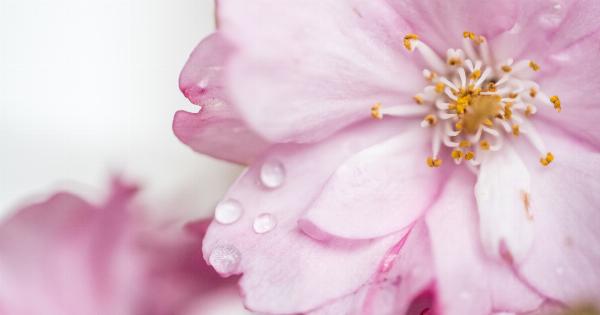Allergic rhinitis, also known as hay fever, is a common condition that causes inflammation and irritation in the nose and throat. It is estimated that about 10-30% of the population worldwide suffer from allergic rhinitis.
While allergic rhinitis is rarely life-threatening, it can be a serious health concern if left untreated and can worsen health for all ages. In this article, we’ll take a closer look at the condition and its effect on people of all ages.
What is Allergic Rhinitis?
Allergic rhinitis is a type of allergy that occurs when the immune system overreacts to harmless substances in the environment.
These substances, commonly referred to as allergens, include pollen from trees, grasses, and weeds, as well as dust mites, animal dander, and mold spores.
Symptoms of allergic rhinitis include:.
- Sneezing
- Runny or stuffy nose
- Coughing
- Postnasal drip
- Itchy eyes, nose or throat
- Watery eyes
- Sinus pressure
- Headaches
Aggravated Allergic Rhinitis
Aggravated allergic rhinitis refers to a more severe form of allergic rhinitis that is often associated with chronic sinusitis.
Chronic sinusitis is a condition where the lining of the sinuses becomes inflamed and swollen, leading to difficulty breathing and decreased quality of life.
The symptoms of aggravated allergic rhinitis are similar to those of regular allergic rhinitis but are more severe and longer-lasting.
If left untreated, aggravated allergic rhinitis can lead to complications such as chronic sinusitis, ear infections, and asthma in some cases.
Treatment for Allergic Rhinitis
Treatment for allergic rhinitis includes both medication and non-medication options. Medications such as antihistamines, nasal decongestants, and corticosteroids can help to relieve the symptoms of allergic rhinitis.
Non-medication options include avoiding allergens, using nasal saline irrigation systems, or using air filters in the home.
If you suspect that you may be suffering from allergic rhinitis, it is important to visit your healthcare provider for diagnosis and treatment.
Allergic Rhinitis and Children
Allergic rhinitis is a common condition in children. In fact, studies show that up to 40% of children in the United States suffer from allergic rhinitis.
Children with allergic rhinitis often experience symptoms such as sneezing, runny nose, and itchy eyes. In severe cases, allergic rhinitis can interfere with normal activities such as school and play.
Treatment for allergic rhinitis in children often involves the use of medications such as antihistamines and nasal corticosteroids.
It is important to work with your child’s healthcare provider to find the right treatment plan that will alleviate symptoms without causing undue side effects.
Allergic Rhinitis and Adults
Allergic rhinitis can affect adults in much the same way as children. Adults with allergic rhinitis often experience symptoms such as congestion, sneezing, and a runny nose. These symptoms can interfere with daily activities such as work and exercise.
Treatment for allergic rhinitis in adults often involves the use of medications such as antihistamines, nasal corticosteroids, and decongestants. In some cases, immunotherapy may also be recommended to reduce the sensitivity to allergens over time.
Allergic Rhinitis and the Elderly
Allergic rhinitis can be a particularly challenging condition for elderly individuals. As we age, our immune systems weaken, making it harder to fight off infections and allergies.
Additionally, elderly individuals may have other health conditions such as asthma that can complicate the treatment of allergic rhinitis.
Treatment for allergic rhinitis in the elderly may involve the use of medications such as antihistamines and nasal corticosteroids. In some cases, immunotherapy may also be recommended.
It is important for elderly individuals to work closely with their healthcare provider to find the right treatment plan that will alleviate symptoms without causing undue side effects.
Prevention of Allergic Rhinitis
Prevention is the best way to avoid the symptoms of allergic rhinitis. Some tips to help prevent allergic rhinitis include:.
- Reducing exposure to allergens, such as dust mites and pet dander
- Using air filters in the home
- Closing windows and doors during periods of high pollen count
- Using nasal saline irrigation systems to keep nasal passages clear
- Washing bedding and clothing regularly to reduce exposure to allergens
Conclusion
Allergic Rhinitis is a common condition that can affect individuals of all ages. While it is rarely life-threatening, it can be a serious health concern if left untreated and can worsen health for all ages.
It is important to work with your healthcare provider to develop a treatment plan that will alleviate symptoms and improve your quality of life.




























